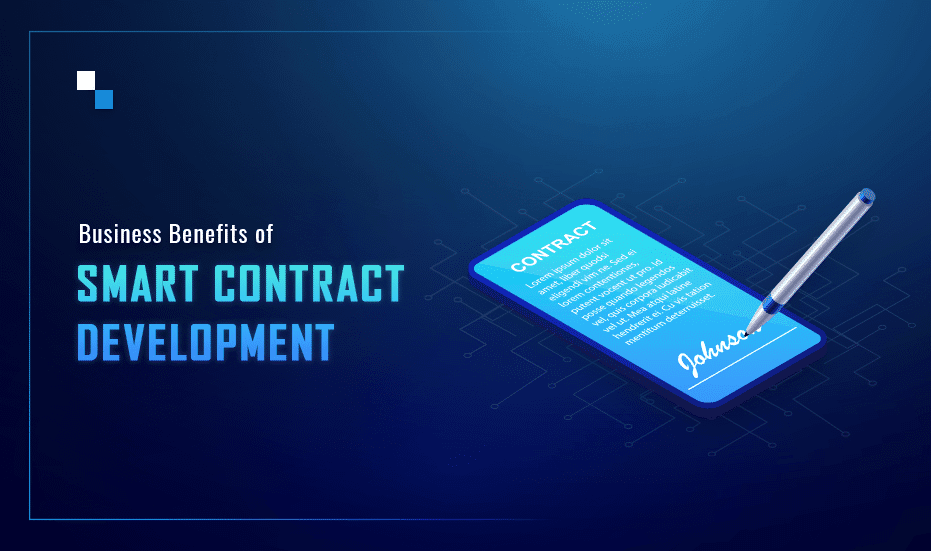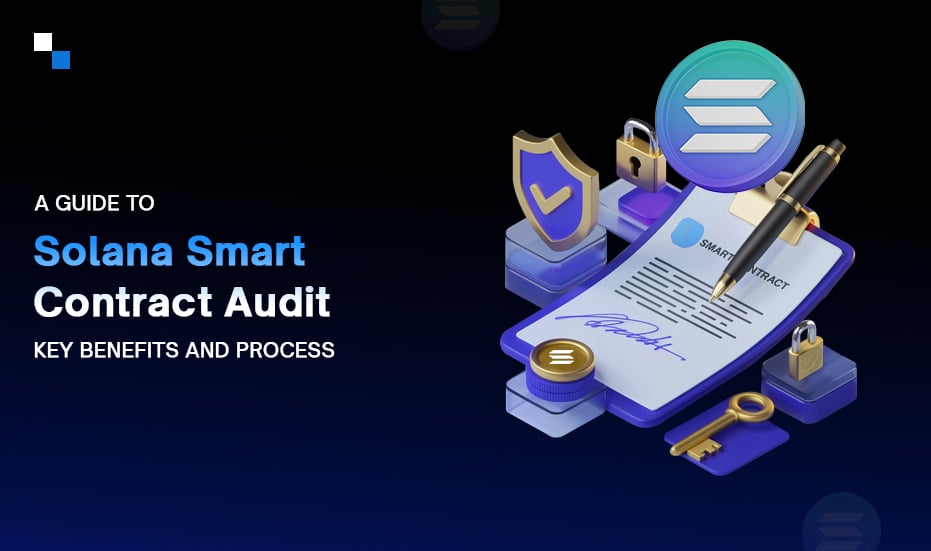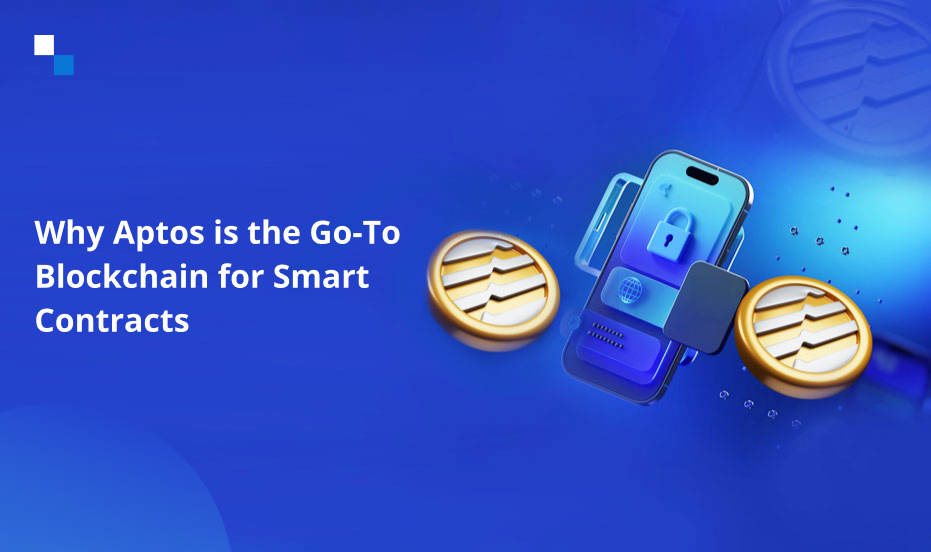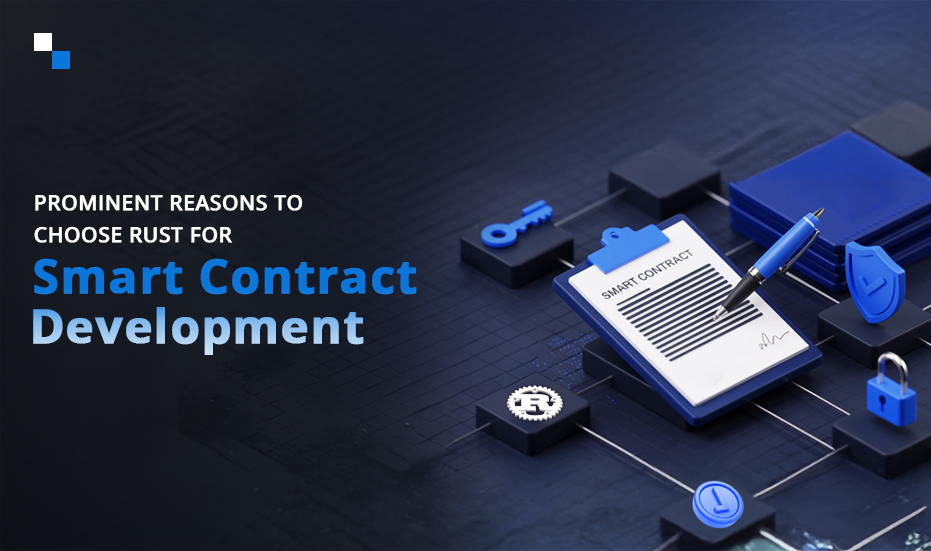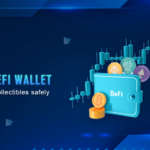
How To Create A Web3 DeFi Wallet The Easiest Way?
November 3, 2022
All About Olympus DAO Staking Development
November 3, 2022The rapid development of blockchain technology has gained wide attention from the corporate sector which is already deploying different techniques of business automation. In the current scenario, Smart contract application development has earned recognition as the subversive innovation that has changed the ways of handling business transactions in a trustless manner, without any human intervention.
Smart contract development cannot be done in the absence of a blockchain network. Thus, we need to understand the evolutionary phases of blockchain technology, and how it impacted the trends of programmable finance.
Blockchain has undergone 3 stages of evolution:
- Blockchain 1.0: Programming cryptocurrency like Bitcoin
- Blockchain 2.0: Programming finance and smart contracts is a part of it.
- Blockchain 3.0: Programming decentralized applications (dApps) and decentralized autonomous organizations (DAOs)
We are now living in an era in which smart contracts play a major role in business finances. From 2016 onward, Smart contract application development was popularly done on Ethereum, and it simplified the ways of automating business transactions. Thus, it gain widespread popularity amongst government and private companies that were ready to get adapted to the new technology. They started using enterprise applications based on blockchain and smart contracts to simplify the ways of dealing with international clients in a risk-free manner.
The history of Smart contract development ways back to 1995, as the term ‘Smart Contract’, was first framed by cryptographer Szabo who believed that computers can replace human beings in carrying out complex crypto transactions with the help of self-executable smart contract codings.
Smart contract application development- The fundamentals
In brief, smart contracts are programmed code based on business logic or agreement and algorithms that must be fulfilled for the realization of authentication and self-execution of financial transactions. Just like the traditional contract, smart contracts have three parts:
- Contract creation: It involves multi-party negotiation, determining specifications, verification of contract, and code acquisition.
- Contract issuance: Smart contract is made available to each node in the peer-to-peer network for consensus.
- Contract execution: Smart contract execution is done using the ‘event trigger’ mechanism. Whenever the predetermined conditions are met, the execution of the contract will be triggered automatically.
Smart contract development is extremely helpful for businesses as it simplifies the processes of distributing and transferring digital assets safely through the blockchain and the records are maintained in an immutable distributed ledger. Control and management of such transactions are not in the hands of human beings, which makes them bias-free.
Get the best Smart contract development Services
Schedule Free DemoBusiness Niches In Which Smart Contract Application Development Proves To Be Much Fruitful
Smart contracts are advantageous for global enterprises because it facilitates low-cost transactions and let them avail multiple business opportunities without having any trust issues. Smart contract application development is much more suitable for financial services, insurance services, logistic services, etc.
- Mortgage
Those involved in the mortgage industry have to take care of complex mortgage agreements that are based on the verification of certain facts like the income of the mortgagee, along with the credit score, expenses, and more such variables. The growing trend of smart contract development has made it easier to handle all such processes for both, the lender and the one who has applied for the mortgage. - Protection of Intellectual Property
Smart contracts assist in the complete protection of intellectual property by providing clear ownership rights to the creator. Thus, the price or royalty goes to the right person. - Supply chain management
Smart contracts enabled the supply chain process to have better transparency, and it helps import/export various commodities in a risk-free manner. Such smart contracts are generally supported by the Internet of Things (IoT) technology. - Insurance
Smart contract application development for insurance firms helps to increase their efficiency and ends the unwanted interference of any middleman. Smart contracts are used for the automation of administrative processes and verifying the conditions before releasing the claims. - Real Estate
Smart contracts are also useful in cracking real estate deals. It eliminates the need of spending weeks in making legal negotiations and completing the paperwork before getting property ownership rights. Everything is handled efficiently with the help of blockchain and smart contracts with ease. - ICO
Initial Coin Offerings or ICO is another popular smart contract use case that helps startup companies to raise funds without going through the complex legal process.
Benefits of Smart Contract Development
Smart contracts are capable of self-execution, which helps to speed up business processes and eliminates the chances of human errors that can affect business relationships.
Here are some of the most recognized benefits of smart contracts:
- Autonomy
No need for intermediaries is what makes smart contracts fully autonomous. A coder having expertise in Smart contract application development would take care of including all the essential parameters on which the smart contracts are going to function and execute. Thus, it would be easier for the businesses to deposit the crypto money in escrow, and it won’t be released until the pre-defined norms are not fulfilled successfully. - Transparency
As smart contracts reside on the blockchain, the transaction records are visible to all parties involved in the contract, which eliminates the chances of monopoly. Here, it is also noticeable that the records are maintained in an immutable digital ledger, and nobody can manipulate the records in their personal favor. - Efficiency
Smart contracts are executed automatically, and it helps to save time and resources. Thus, it helps to speed up the business process and improves efficiency. - Cost Saving
Smart contract development helps businesses to lower the cost of transactions, especially cross-border transactions. There is no need to pay fees to multiple parties that are involved in the transaction process. One has to pay only the gas fees, and nothing else.
Drawbacks of smart contracts
Every technology has its benefits and drawbacks. Smart contracts are not devoid of some shortcomings. Let’s find out!
- Human Errors: Once the smart contract with a faulty code is deployed on the blockchain, it’s not possible to edit or modify the code. It can be risky for a business.
- Lack of regulation: Smart contracts are not controlled by any recognized government authority. Therefore, there might be some legal issues that must be addressed.
Best Platforms For Smart Contract Application Development
Businesses prefer using smart contract-enabled applications for enhanced transaction security because of encryption technologies. Secondly, the ability to execute on its own provides better speed & transparency and also helps to maintain the accuracy of transactions.
Here are some of the best platforms that allow smart contract development:
- Ethereum
It’s the first blockchain platform on which the foundation of smart contracts was laid down. It’s still the most widely used blockchain for the creation of smart contracts. Ethereum Virtual Machine (EVM) plays a key role in the execution of smart contracts on Ethereum. - Algorand
Algorand has better speed and low transaction costs as compared to Ethereum, and it also supports Smart contract application development. It can fulfill the requirements of almost all types of dApps. Just like EVM, Alogorant uses Algorand Virtual Machine (AVM) for the execution of smart contracts. - Avalanche
The Avalanche blockchain provides a perfectly suitable ground for smart contract application development, as it provides a better shield against 51% attack. Rather, one needs to make a minimum of 80% changes to get full control over the blockchain and manipulate its transactions in its favor. As the blockchain is compatible with EVM, the developers can port their dApps from Ethereum with ease. - Polkadot
It is necessary to understand that Polkadot is not a direct supporter of smart contracts. In fact, the relay chain is connected with parachains on which the smart contracts are developed. - Cardano
Cardano’s upgraded version is a better supporter of smart contracts and can be used for creating dApps for safe financial transactions. - Solana
Developers can use Solana for smart contract development because of its advanced features like high scalability, lightning-fast speed, and low-cost transactions.
Conclusion
Choosing the right partner for smart contract application development will be one of the most crucial steps you need to take for creating your decentralized application. Apart from making the choice of experts for smart contract development and the applicable technology, you must consider the most preferred blockchain platform to ensure better usability of your dApp.
